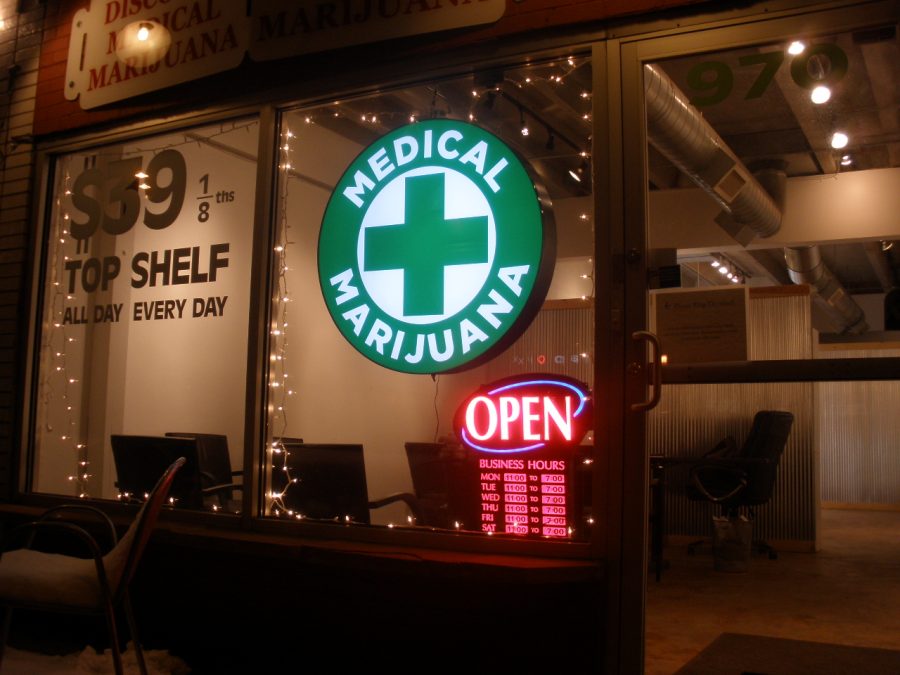Gordy: Medical marijuana should only be the beginning
© O'Dea at Wikimedia Commons, CC BY-SA 4.0, CC BY-SA 4.0, via Wikimedia Commons
The passing of Initiative 65 legalized some forms of medical marijuana in Mississippi.
November 18, 2020
On Nov 3, 2020, Mississippi joined the list of 45 other states to have some form of legalized marijuana. This victory is a small step in the state’s push for the legalization of the drug, with Mississippi becoming the 10th state to decriminalize the drug in a limited fashion 42 years ago in 1978. While many Mississippians are rejoicing over the passing of Initiative 65, I think that we as a state need to take the legalization of drugs even further.
When California became the first state to legalize medical marijuana in 1996, it unknowingly started a wave of legalization throughout the nation. Between 1996-2012, 19 states legalized marijuana for medicinal purposes. In 2012, Colorado and Washington became the first states to legalize marijuana for recreational use, and 13 states have followed suit since. In 2020, Oregon became the first state to decriminalize all street drugs and are now putting more focus on mental health and addiction rather than jail time with Measure 110.
Oregon’s approach to the war on drugs is something all states, and the federal government, need to pay close attention to. Mississippi remains the state with the third highest incarceration rate, and drug possession is a large part of this problem. If Mississippi were to just completely legalize marijuana, over 2,600 incarcerated people in Mississippi would be released from prison, and millions of dollars would be made, with California and Colorado having made over 1.5 billion dollars each from the industry. Aside from making money, Mississippi would save money with the release of its prisoners who are serving for marijuana possession, with taxpayers paying around $20,000 a year for one prisoner on average.
Even though Mississippi needs to do more with its war on drugs, it’s important to commend the legalization of medicinal marijuana. Cannabis has been used as a medicine as early as 400 AD and is known to help seizures, depression, anxiety, PTSD, chronic pain, diabetes, etc. When Mississippi voted to legalize the drug for medicinal use in November, it provided these benefits to nearly three million people, even helping some switch off prescription painkillers, which are known to be the cause of overdose for millions of Americans each year. However, recreational marijuana is not a fix all situation on the drug war. Many people actually believe that legalizing the drug will increase its abuse and act as a gateway for people into harder substances. While this is possible, it is important to understand that like marijuana, alcohol and nicotine, which are both legal, have similar effects in terms of being gateway drugs. An article by Forbes found the most popular argument for keeping weed illegal was the concern that it would cause more car accidents. This is a valid concern, but there is no data that links being high to car accidents, and using this argument, alcohol should also be illegal.
Mississippi legalizing medical marijuana is a baby step in the work that needs to be done if we want to end America’s war on drugs. While legalizing marijuana for people with health problems, the state and the country need to do more to help those struggling with issues legalizing marijuana will not fix. Mississippi needs to follow in the steps of Oregon and decriminalize all drugs, and medical marijuana is the first step. More Mississippians need to educate themselves on the positives of drugs such as marijuana, advocate for those benefiting from the drugs and push for the legalization of not just marijuana, but for the decriminalization of all drugs within the state.









